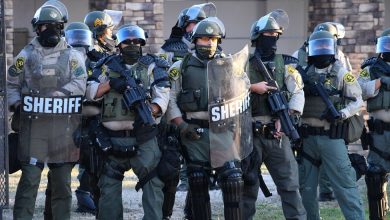Why Generations of Black Americans Have Celebrated the New Year at Church

The last place that I wanted to be on Dec. 31 was church. But there I was on New Year’s Eve, clustered next to a host of other Black teenagers in the back of the sanctuary for our Watch Night service. We were waiting to be freed to go to the clubs and house parties that had begun their festivities without us.
Watch Night is a tradition in Black churches that began as a way to celebrate the Emancipation Proclamation. For my congregation in Huntsville, Ala., in the 1990s, that meant choirs from Black churches all over the city sang hymns and spirituals. A stream of pastors ascended the pulpit to deliver impassioned sermons. Their aim was to send the congregation into a frenzy of praise and thanksgiving that shook the wooden floors and the stone pillars of the sanctuary. They wanted us to end the year with a shout.
We may not have wanted to go to church those nights, but even the most stubborn of us teenagers could rarely resist the full impact of the preaching and singing. Watch Night celebrated survival. To be Black and alive for another year in Alabama felt like a miracle. The elderly among us had survived the cotton fields and Jim Crow and the crack epidemic and the war on drugs. Often a few faces young and old who had attended Watch Night in the past were no longer with us. Alongside the celebration, there was the memory of those we had lost to injustice and human frailty.
Watch Night, as we celebrate it now, began on New Year’s Eve 1862, the night before Abraham Lincoln’s proclamation went into effect on Jan. 1. Black congregations in the North and the South gathered to keep vigil and pray for the freedom of enslaved people in Confederate states. Frederick Douglass captured the anticipation that marked that day when he addressed his home church Spring Street African Methodist Episcopal Zion in Rochester, N.Y., on the Sunday before Emancipation.
He said, “It surpasses our most enthusiastic hopes that we live at such a time and are likely to witness the downfall, at least the legal downfall, of slavery in America. It is a moment for joy, thanksgiving and praise.”
What does this celebration mean for Black Americans some 160 years later? What, to the descendants of the enslaved, is New Year’s Eve? Watch Night argues that God has answered our prayers for liberation both spiritual and material. To the cynic who asks what has God done for Black people, we reply on Watch Night: He has freed the slaves and changed our lives.
Over time Watch Night has taken on a second purpose. My mother (and Black parents all over America) used it to keep us off the streets during the scary hours. My mom knew the frivolity of New Year’s Eve parties in my neighborhood could lead to trouble. I remained one encounter with an excessively hostile partygoer or overzealous police officer away from a life-changing incident. Driving while Black in the early hours of a new year was not for the faint of heart.
That was the complicated thrill of the new year; it was danger, possibility, love and hope condensed into competing parties and church services. Often we would attend Watch Night and then go to the club shouting and shaking our hips at both. We were struggling with who we wanted to become and wrestling with the ever-present options and temptations of Black life in America.
Kanye West and Jay-Z may suggest that there was “no church in the wild.” But the church I knew was precisely there in the wild where the Black people were. It kept watch. The church made the case that we needed goodness, truth, beauty and holiness to give us hope. It acknowledged the centuries-long string of injustices that led to many of the difficulties we now face, and it opposed them. But those sins past and present did not relieve us of moral agency.
The church, at its best, stood vigil, making a case for a better way to be human than a utilitarian ethic that used our shared trauma to justify exploiting other suffering Black people. It argued that the same God who opposes institutional racism travels all the way down to personal evil, resisting the ways that we harm one another. By arguing for both societal change and personal transformation, Watch Night suggests that justice and righteousness are not so easily separated.
Juneteenth, which recently became a federal holiday, remembers that news of the Emancipation Proclamation did not reach all of the enslaved right away. There were some who knew that freedom was on the horizon and those who had no idea of the momentous changes shaking American society. It was the work of those who knew about the newfound freedom to contend for those who could not fend for themselves. We are not free until everyone is.
Each New Year’s Eve reminds us that the work is never finished. Douglass knew that. He said, “The slave having ceased to be the abject slave of a single master, his enemies will endeavor to make him the slave of society at large.” Because of his prophetic imagination and the painful lessons of history, he saw that something like Jim Crow was on the horizon. He knew that law and custom would endeavor to return us again and again to servitude.
What is the solution to that ever-present threat? Douglass said, “The price of liberty is eternal vigilance.” Each generation of Black folks has taken up this watch keeping, guided by a moral compass that transcends the limited imagination of the powerful. We have done so out of respect to the generations whose vigils — filled with prayer, thanksgiving and sanctified dissatisfaction — won us the freedoms we now enjoy.
It’s been years since I attended a Watch Night service. I miss them. A largely white university experience, my wife’s military service in Japan and graduate studies in Britain took me far from the Black churches that kept watch. I spent too many years with those who do not remember the deadly slave ship, the dehumanizing auction block or the daring midnight escapes to the North with God as the only hope.
Now that I am back in a Black church in the United States, I’m looking forward to introducing my children to the practice of keeping watch, after the Covid pandemic allows our local church to resume its full schedule of services. Hopefully, Watch Night will connect them to a heritage too precious to lose.
On the edge of those New Year’s Eves at church, time felt thin. We seemingly stepped inside history, if only for a moment, to join with the great cloud of witnesses that lauded Black freedom and mourned those slaves who died before freedom came. Too many New Year’s Eve gatherings know only celebration. They do not know how to lament the lives lost or how to inspire the commitment that comes from honoring their legacies. Those parties are too free of our histories.
There are a number of New Year’s resolutions on the horizon. I am sure we will fail at most of them. But I hope that we do not fail to take up the responsibilities handed to us by our ancestors. We must in 2022 take up the watch so that the coming generation might inherit a more free and just society.
The Times is committed to publishing a diversity of letters to the editor. We’d like to hear what you think about this or any of our articles. Here are some tips. And here’s our email: [email protected].
Follow The New York Times Opinion section on Facebook, Twitter (@NYTopinion) and Instagram.





